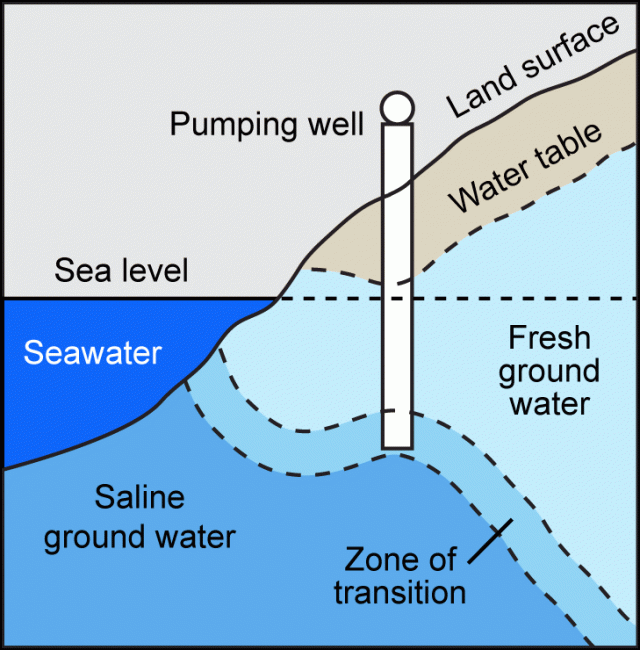Climate Adaptation and Saltwater Intrusion
EPA works with drinking water utilities to provide clean and safe drinking water.
Source water quality, both groundwater and surface water, is at risk from saltwater intrusion due to rising sea levels, changing water demands and the occurrence of drought.
Water resources along the coasts face risks from saltwater intrusion. Rising sea levels, drought and changes in water demand and availability can increase the salinity of both groundwater and surface water sources of drinking water.
Groundwater
Sea-level rise, in combination with increased groundwater pumping can increase saltwater intrusion in groundwater aquifers. Saltwater intrusion into groundwater aquifers can increase treatment costs for drinking water facilities or render groundwater wells unusable.
Surface Water
As the sea levels rise, the “salt front” (location of the freshwater-saltwater line) may progress further upstream. This encroachment may be further exacerbated by drought, reduced rainfall or changes in water use and demand. Saltwater intrusion can result in the need for water utilities to increase treatment, relocate water intakes, or development of alternate sources of fresh water.
Saltwater intrusion, through surface or ground water sources, may diminish the availability or quality of source waters for drinking water utilities.

